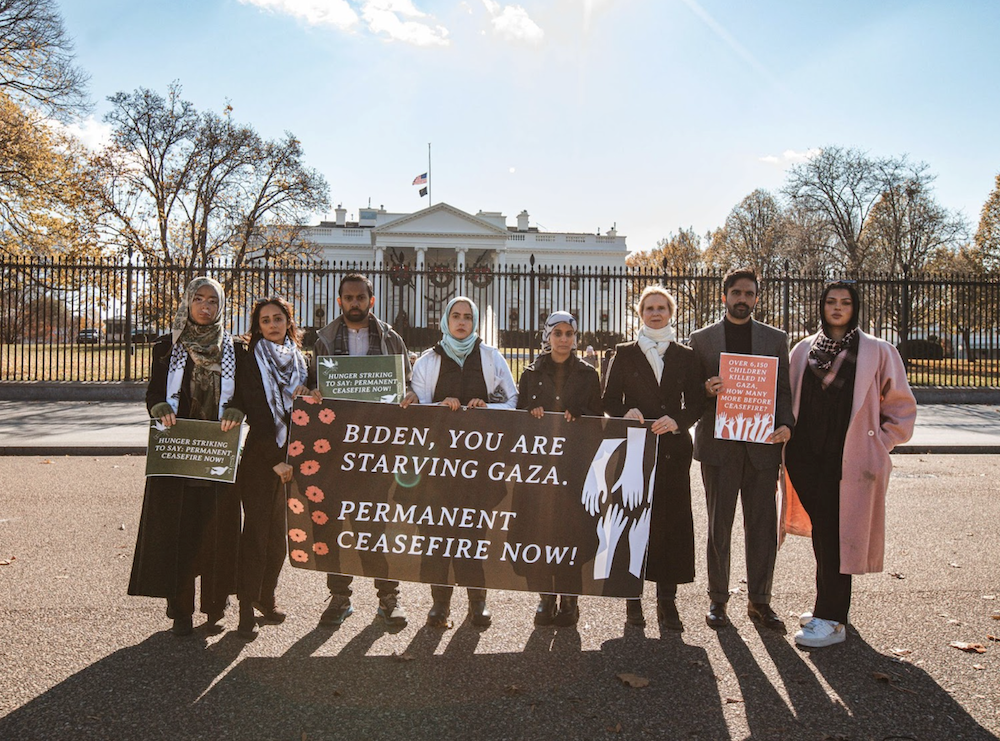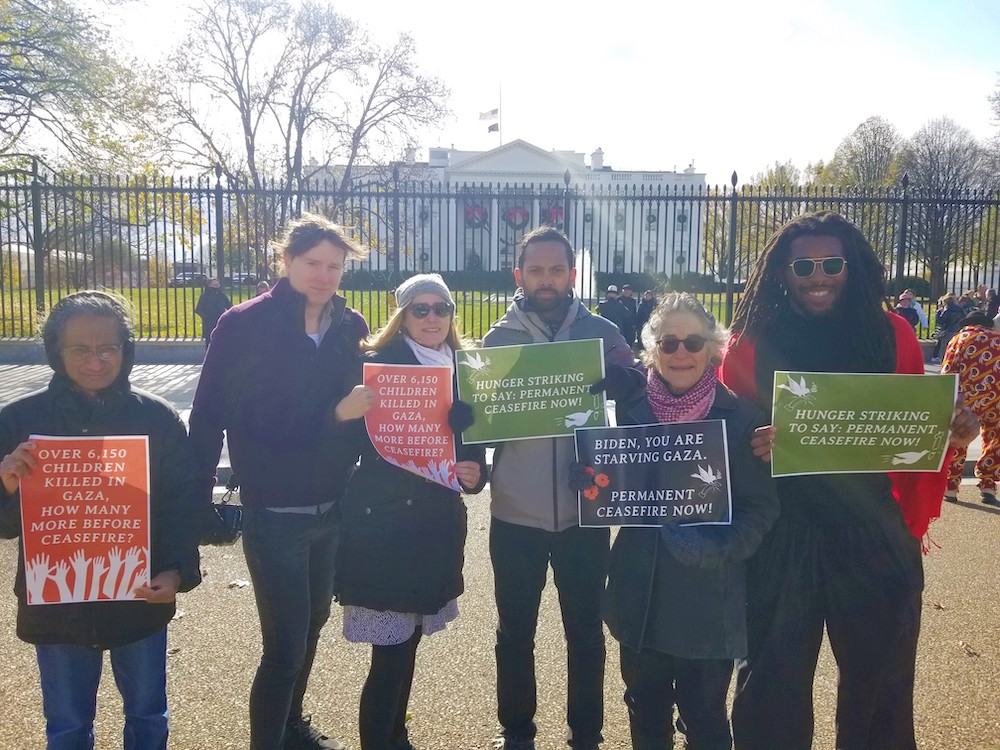Hunger Striking for a Permanent Ceasefire in Gaza
By
Ashik Siddique
Posted:
|
Military & Security

From left to right: DE State Rep. Madinah Wilson-Anton, Bita iuliano (activist, grassroots organizer), Ashik Siddique, Sumaya Awad (author/activist, Adalah Justice Project), Rana Abdelhamid (organizer and former congressional candidate), Cynthia Nixon (actor/director), NY State Assembly Member Zohran Mamdani, Amani Al-Khatahtbeh (Founder, Muslim Girl). Photo Credit: Eman Mohammed.
Last week, I was proud to join a group of activists and state legislators in a 5-day hunger strike outside the White House, to demand a permanent ceasefire in Gaza, now.
For two months, Israel’s attacks on Gaza have taken 15,000+ Palestinian lives, with unquestioning support from President Biden and most of Congress. That includes almost $4 billion in direct U.S. military funding to Israel year after year, while taxpayer dollars continue to be diverted here at home from basic human needs like housing, healthcare, and education — and now an extra $14 billion proposed amid these massacres. Among the dead are more than 6,150 children, with over 1,800 children still missing under the rubble.
If Palestinians are lucky enough to survive bombing, they are still stripped of electricity, food and water, and facing starvation and disease as a weapon of war. After weeks of massive public pressure, a temporary “pause” was finally announced. But this wasn’t nearly enough. After only 7 days of some reprieve for people on the ground, Israel resumed its assault late last Thursday night. A permanent ceasefire is necessary to save many more lives, and beyond that the hard work of negotiating real political solutions.
Depriving ourselves of food for almost a week was challenging, but it was a small price to pay to focus attention on the immeasurably dire conditions faced by people in Gaza at this moment. We had a choice to stop if it got to be too much — Palestinians in Gaza have no choice. Day after day, we stationed ourselves through cold and rain, talking to passersby, and rallying with Palestinian organizers as well as Jewish, Black and Indigenous allies, labor leaders, actors like Cynthia Nixon and Denée Benton, and members of Congress including Rashida Tlaib, Cori Bush, Jamaal Bowman, and Jonathan Jackson. We closed each day with a nightly candlelight vigil, reading out the names and ages of Palestinians who were killed.
We ended the hunger strike on Friday backed up by 541 people fasting remotely in solidarity, and more than 3,000 phone calls made to members of Congress — and a labor solidarity rally where the United Auto Workers (UAW) announced their international union’s support for a permanent ceasefire, along with unions representing 454,000 workers across the nation.
The UAW announcement included a commitment to exploring a just transition for US workers from war to peace — a goal which has not been a serious political prospect in the United States since major labor unions organized for a “peace dividend” and military conversion in the 1990s. This is a significant breakthrough in organizing against U.S. militarism, and opens up exciting new space to keep building toward major shifts in resources from militarism to human needs.
We will keep organizing on the streets, pressuring elected office, and all across the country to demonstrate how out of touch this administration is with many millions of Americans who demand a permanent ceasefire— and to organize power against those who aid and abet atrocities, to win the world we need.

From left to right: Basav Sen, Avery Rhoades, Sarah Anderson, Ashik Siddique, Phyllis Bennis, and Kufre McIver of the Institute for Policy Studies. Photo Credit: Sarah Anderson